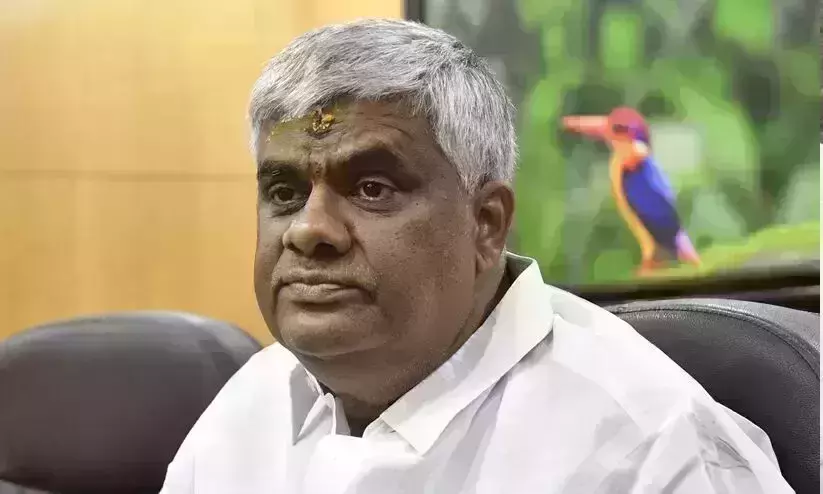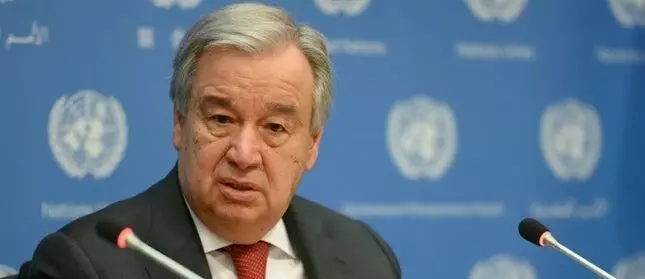
UN chief urges to 'end the addiction to fossil fuels' at WEF
text_fieldsDavos: The UN secretary-general, Antonio Guterres, urged world leaders and companies to intensify their efforts to achieve net-zero carbon emissions during his Wednesday address to the World Economic Forum in Davos, Switzerland.
Additionally, he urged company executives to present "credible and transparent" strategies outlining their objectives to reach net zero by the end of the year.
Guterres said that many companies have established their climate goals using "dubious or murky" standards, which can “mislead consumers, investors and regulators with false narratives.”
“It feeds a culture of climate misinformation and confusion and leaves the door open to ‘greenwashing,’” he told delegates at the WEF’s Annual Meeting, AFP reported.
“The transition to net-zero must be grounded in real emissions cuts and not rely essentially on carbon credits and shadow markets. That is why we (the UN) created an Expert Group on Net-Zero Emissions Commitments.”
Guterres cautioned that time is running out to stop disasters connected to man-made climate change from escalating in size and frequency.
He said, "We are looking into the eye of a Category 5 storm."
According to scientists, any increase in global temperatures must be kept to no more than 1.5 degrees Celsius above pre-industrial levels in order to prevent the worst effects of climate change. Since the late 1800s, the planet's average surface temperature has already risen by around 1.8 C.
Guterres urged the world to “end the addiction to fossil fuels,” warning that the aspirational goal of limiting warming to 1.5 C was “going up in smoke.”
“Fossil fuel producers and their enablers are still racing to expand production, knowing full well that this business model is inconsistent with human survival,” he said.
“This insanity belongs in science fiction, yet we know the ecosystem meltdown is cold, hard scientific fact.”
At the COP21 UN Climate Change Conference in 2015, 196 nations accepted the Paris Agreement, a binding global climate change agreement that vowed to step up efforts to cut greenhouse gas emissions by 45 per cent before 2030.
They were also required to increase their resilience to the adverse consequences of climate change, support and encourage regional and international cooperation, and work toward net-zero emissions by 2050.
According to data compiled by the UK-based Energy and Climate Intelligence Unit, 137 nations have made commitments to becoming carbon neutral by the year 2050. Among them, 124 have goals for the year 2050.
The only two countries that have achieved carbon neutrality and are actually carbon negative to date are Bhutan and Suriname. 24 nations have made their climate targets part of official policy. They include some of the biggest polluters in the world, including Brazil, China, Germany, and the US. Five nations, including Canada, South Korea, and numerous EU member states, are preparing legislation.
However, it is anticipated that global greenhouse gas emissions would still rise by over 11% by 2030, compared to 2010, even if the 193 parties to the Paris Agreement execute their current commitments.
























